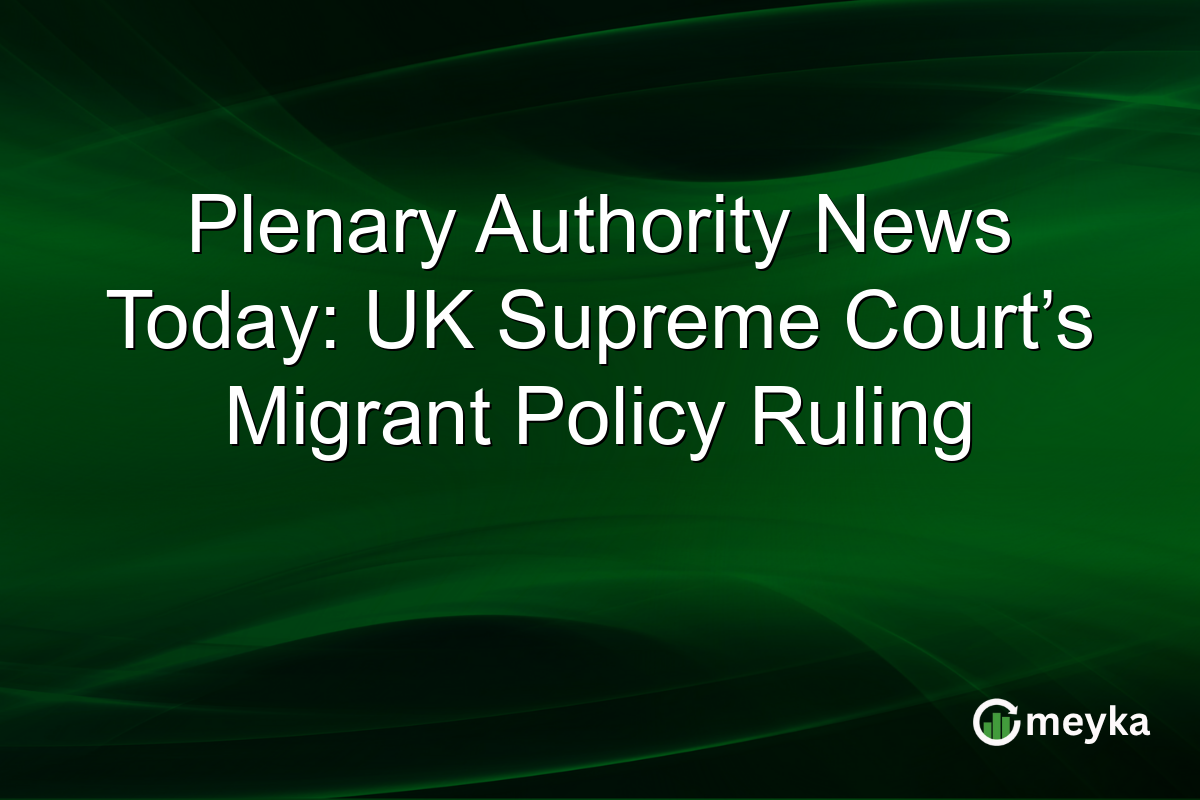Plenary Authority News Today: UK Supreme Court’s Migrant Policy Ruling
The UK Supreme Court recently issued a landmark ruling on the use of plenary authority over immigration, shaking up the legal landscape. This decision, grounded in challenges to government plenary powers, holds significant implications for how the UK manages immigration and asylum procedures. Let’s examine what this means for the UK government and its expansive authority in shaping immigration law.
The Supreme Court’s Landmark Decision
On October 8, 2025, the UK Supreme Court ruled on the government’s scope of plenary powers regarding migrant policies. The decision restricted these powers, emphasizing the need for checks and balances within immigration law. This ruling stems from a challenge against the government’s wide-ranging authority to manage immigration and deportation without adequate judicial oversight.
This decision underscores the court’s crucial role in balancing executive action and safeguarding individual rights. The ruling represents a pivotal moment, ensuring that governmental decisions align with both legislative intent and constitutional boundaries.
For more on the decision, visit [Bloomberg’s article](https://www.bloomberg.com/news/articles/2025-10-08/uk-supreme-court-limits-government-authority-on-migrant-policy) rel=”noopener noreferrer”.
Implications for Immigration Policy
The court’s ruling alters how immigration policy can be implemented, directly affecting legislative and executive interactions. This decision restrains ministers from exercising unchecked authority over asylum seekers and deportations.
The ultimate impact will likely involve further legal scrutiny of governmental immigration actions. By demanding a more regulated approach, the ruling emphasizes adherence to human rights and legal frameworks. This represents a shift towards more transparent policy-making.
For detailed coverage, see the [Financial Times report](https://www.ft.com/content/uk-supreme-court-ruling-immigration) rel=”noopener noreferrer”.
Public Reaction and Legal Reform
Public reaction has been mixed, with advocacy groups praising the decision as a victory for human rights. Meanwhile, some government officials express concerns about operational constraints.
Legal experts suggest that this ruling could catalyze broader reforms in immigration law, promoting new legislation that respects both governmental authority and individual protections. These changes could redefine UK immigration policy, making it more accountable and rigorous.
Explore these perspectives on [Reuters](https://www.reuters.com/world/uk/supreme-court-ruling-government-powers-immigration-2025-10-08/) rel=”noopener noreferrer”.
Final Thoughts
This ruling by the UK Supreme Court serves as a significant check on government plenary powers, fostering a more balanced immigration policy. It intensifies the dialogue around executive authority, advocating for transparency and legal oversight. As the UK navigates these changes, the decision marks a step towards ensuring that both public interest and individual rights are safeguarded in the legal landscape.
FAQs
Plenary authority refers to the complete power to act on a particular issue without limitations. In government, it often involves executing policies or actions without the need for specific legislative approval.
The ruling limits the government’s unilateral power over immigration decisions. It mandates checks on executive actions, ensuring policies adhere to human rights and legislative frameworks.
This ruling is significant because it ensures governmental accountability in immigration matters, reinforcing the necessity for judicial oversight in protecting individual rights and ensuring lawful policy implementation.
Disclaimer:
This is for information only, not financial advice. Always do your research.






